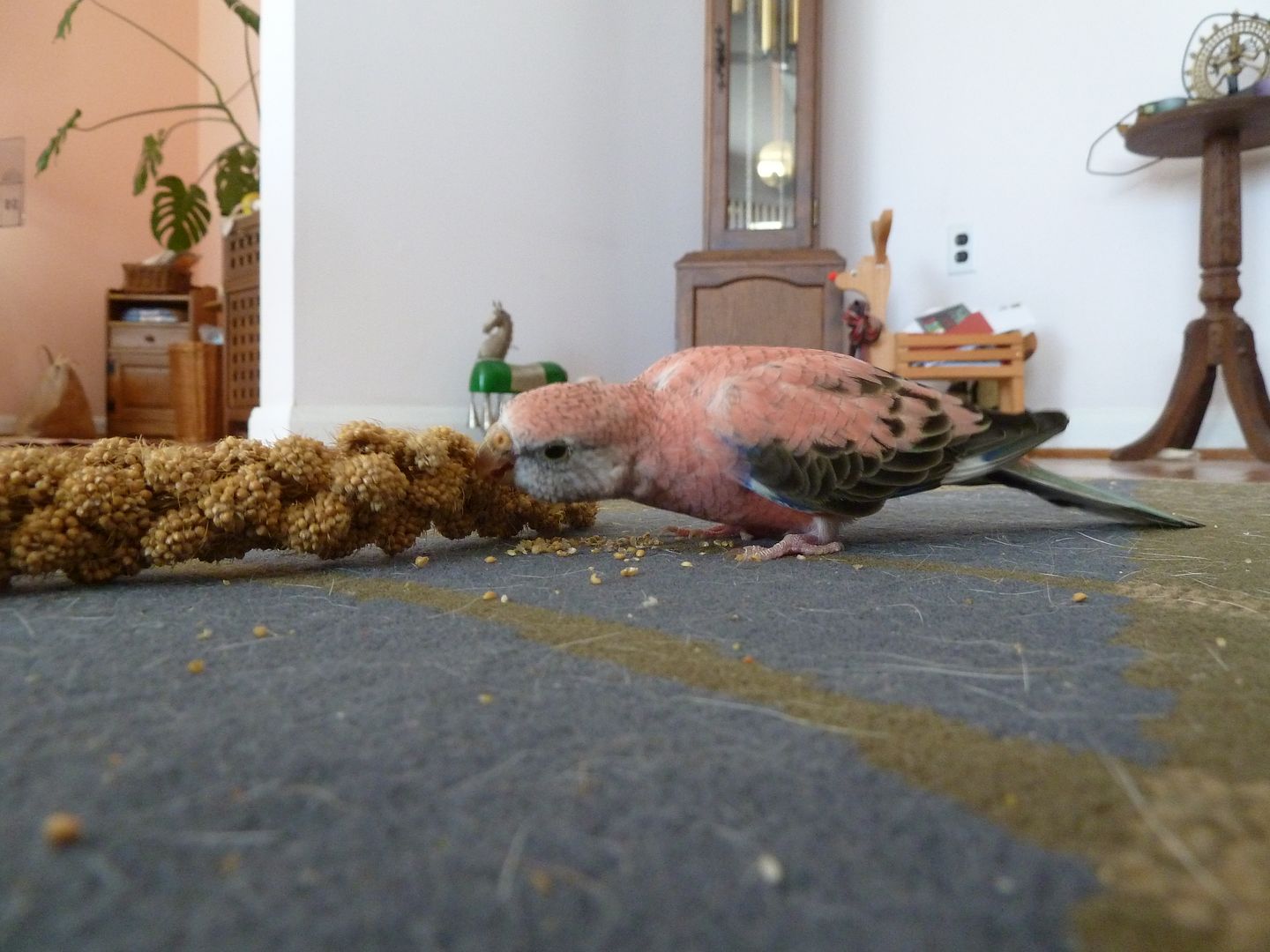little word of caution with dried mealworms.... The exoskeletons could be irritating the digestive tract. Birds do swallow live food whole, but usually squeeze out the insides and remove the outer skeleton, especially when feeding chicks. They can't do that with the dried so they are ingesting the outer skeleton. You may see gritty brown droppings as a result of the birds not being able to digest the hard exoskeletons of dried mealworms. Grasskeets do not require live food or dried insects they are primarily seed foragers.
Fortified seed should not be relied on as giving your birds what they require, the vitamins and minerals are impregnated into the hull of the seed which is discarded. Very unreliable as to how much the bird is actually getting, best to use a powdered supplement in soft foods. Some of the prepackage seeds with pellets (found in petstores) added often contain pellets that are stale or too hard or too big. Blending a fresh bag of Zupreem or Roudybush Nibbles or Prettbirdy mini works well.
From one of the leading authorities on grasskeets
"Diet
In the wild, Grass Parakeets spend most of their day foraging for their regular staple of grass seeds. In the aviary, they also spend a good part of their day eating. You need to accommodate their habits by feeding them a variety of foods that are not only nutritious, but will also keep them busy. A quality parakeet seed mixture with an occasional spray millet as a treat, cuttlebone and fresh water daily will serve their basic needs. They relish fresh fruits and vegetables, such as apples, oranges, kale, broccoli, carrots, corn and wheat grass. All fresh produce should be washed thoroughly; these birds are very sensitive to even small amounts of pesticides. I go so far as to feed my birds only organically grown fruits and vegetables purchased from a health-food store.
During breeding season, my birds receive honey-wheat bread and a custom-blend of dry egg-food mix. This is prepared by mixing commercial egg food, hemp seed, some small black oily sunflower seed, calcium powder and spirulina.
Neophemas, especially those kept in outdoor aviaries in warmer climates, are susceptible to Candida infections. Therefore, keep their food and water dishes scrupulously clean and remove any uneaten fruits and vegetables from the aviary within one hour after feeding. I do not add vitamins to their drinking water; the mixture can grow bacteria in warm weather and cause fungal or bacterial problems. I also never medicate my birds via their drinking water, because they are desert birds and drink very little. Not only will they not receive enough medication this way, but a sick bird will dehydrate from not drinking. It may be more time-consuming, but I medicate my ill parakeets orally. This way I am sure they are receiving an accurate dose."
http://www.proaviculture.com/neophemas.htm


